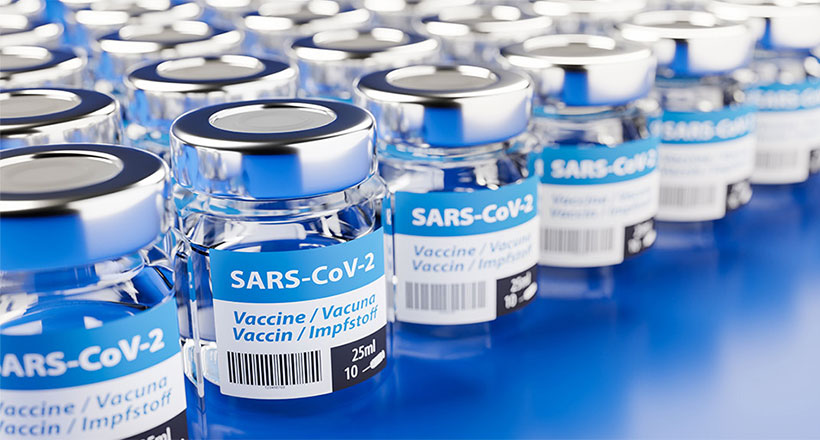Miss Me With Your Best Shot
One hundred million Americans in 100 days. This goal was set by President Joe Biden regarding how rapidly he plans to distribute COVID-19 vaccinations. However, America, which has vaccinated only 20 percent of its population, is well behind other countries like Israel, which has already immunized about 92 percent of its population. Thus, Biden strives to facilitate immunizations as rapidly as possible, for COVID has already physically and mentally harmed too many Americans. Some Americans, like 17-year-old Anna Ryu, “hope to take the vaccine once it’s available, and after all other people at risk or essential workers have gotten it first.”
But “all” is becoming an unfeasible goal. According to the New York Times, in November 2020, “a Pew Research Center poll conducted late last month found that 18 percent said that they would ‘definitely not’ take the vaccines ‘if it were available today’ and that 21 percent said that they would ‘probably not.’” Like with most minority groups, that 18 and 21 percent, which includes me, unfortunately experiences ruthless resentment from a portion of society. We encounter malicious accusations of “not caring about others,” being “gullible to misinformation” and being “unaware of what is happening to our world.” Additionally, I pray for my uncle in California who is currently combatting COVID-19.
However, these opinions do not apply to me. My heart would shatter if one of my family members contracted the threatening disease. I devote hours listening to Dr. Fauci and other health experts’ enlightening comments about the vaccines. And I am perfectly aware that COVID-19 has produced “more than 28 million cases” and “more than 500,000 reported deaths” as of March 1 with “between 50,000 and 180,000 cases a day in the past month,” as emphasized by NBC News. In fact, my dad’s friend in New York City nearly died from the coronavirus, so my dad assigned my sister and me to remote learning this school year.
Nevertheless, like me, according to the New York Times, “many health care workers have been hesitant about these vaccines because they are so new.” For example, Mary Ann Lee, an oncology nurse, admitted that she “felt nervous” before her COVID-19 immunization since “[she didn’t] know how it [was] going to affect [her] as far as side effects [were] concerned.”
To clarify: I am not against vaccines themselves. Actually, I find Jenny McCarthy’s constant remarks “about vaccinations causing autism” to be utter gibberish. Furthermore, I always have to push my dad to let me take the influenza vaccine every year due to his own hesitations for flu shots. I understand that “the [COVID] vaccines are roughly 95 percent effective,” as outlined by ABC News, partially since scientists made the vaccines after seeing the virus firsthand. Yet, influenza vaccines which, according to the CDC, “only reduces the risk of flu illness by between 40 percent and 60 percent among the overall population” since they are manufactured before scientists see how the flu appears in a given year, seem safer to me only because they have existed for a longer time.
Some of us are naturally wary of unforeseen changes. For me, especially since the vaccines were conceived sooner than anticipated thanks to technological advancements, I wonder if enough testing had been performed before the vaccines’ public releases, or if companies were pressured to issue the vaccines as soon as they could to please impatient Americans who yearn for things to get back to “normal.”
Additionally, Lee always tells me that the CDC “emails her every day” to monitor her post-vaccination health status. While we periodically joke over the CDC’s abundant email spamming, I cannot help but assert that these emails demonstrate the CDC’s own vigilance for the vaccines. If the CDC itself is worried, why cannot I be so too?
Furthermore, the CDC highlights that kids like me who are under the age of 18 “should not receive [the Moderna] COVID-19 vaccination at this time.” How am I, a prudent person, meant to be relieved that the vaccine’s effects are not entirely determined for my age group? Once I turn 18 and become eligible for a shot in about five months, am I supposed to become confident that my body is suddenly prepared to handle any potential side effects of the immunization?
While some Americans are satisfied with the CDC’s mostly confident approval of the vaccines, people like me refuse to accept the vaccinations until the CDC holds absolutely zero doubts over them. Yet, beneath my blanket of desperation, I know that this situation is virtually impossible.
Hence, the best thing that can truly console uncertain individuals like me is time. Be patient with those who approach you and express their concerns about the shot. Be patient with those who constantly research the vaccine. Be patient with those who are not mentally prepared to set up an immunization appointment. We will get there…
Eventually.
Harassing us about our apprehensions will only worsen our anxieties, not alleviate them. Just as people who support the vaccine are tired of hostile “anti-vaxxers,” our patience for those who criticize our unease is on the verge of collapse. As more people get vaccinated with assuring results, I hope to slowly come to appreciate the rapidity in which the vaccine was conceived, rather than be alarmed by it.
One day, I will courageously leave the 18 percent.


